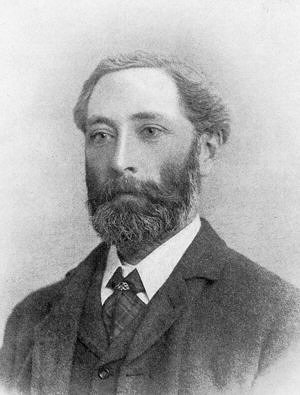W. W. Rouse Ball
English mathematician and lawyer (1850–1925)
Walter William Rouse Ball, known as W. W. Rouse Ball (14 August 1850 – 4 April 1925), was a British mathematician, lawyer, and fellow at Trinity College, Cambridge from 1878 to 1905.

| This article about a mathematician is a stub. You can help out with Wikiquote by expanding it! |
Quotes
edit- It was, however, from Spain, and not from Arabia, that a knowledge of eastern mathematics first came into western Europe. The Moors had established their rules in Spain in 747, and by the tenth or eleven century had attained a high degree of civilisation.
- W. W. Rouse Ball, A Short Account of the History of Mathematics (1888), Courier Dover, 1960, p. 164
- Babbage was one of the founders of the Cambridge Analytical Society whose purpose he stated was to advocate "the principles of pure d-ism as opposed to the dot-age of the university.
- W. W. Rouse Ball, History of Mathematics, (London, 1901), p. 451
- The great masters of modern analysis are Lagrange, Laplace, and Gauss, who were contemporaries. It is interesting to note the marked contrast in their styles. Lagrange is perfect both in form and matter, he is careful to explain his procedure, and though his arguments are general they are easy to follow. Laplace on the other hand explains nothing, is indifferent to style, and, if satisfied that his results are correct, is content to leave them either with no proof or with a faulty one. Gauss is as exact and elegant as Lagrange, but even more difficult to follow than Laplace, for he removes every trace of the analysis by which he reached his results, and studies to give a proof which while rigorous shall be as concise and synthetical as possible.
- W. W. Rouse Ball, History of Mathematics, (London, 1901), p. 463;